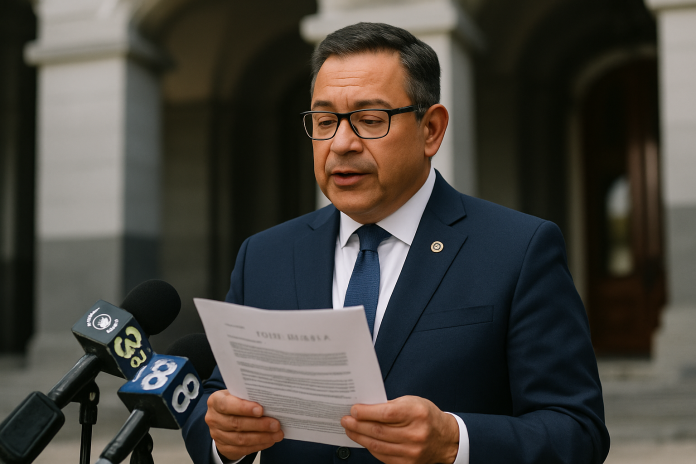California Senate Bill 243 was passed by the legislature and awaits Governor Newsom’s signature. The bill would require AI chatbot operators to implement mandatory safety measures to protect minors from harmful content and interactions. “The legislation, awaiting Governor Newsom’s signature, establishes $1,000 penalties per violation and creates the nation’s first comprehensive framework for AI chatbot accountability.
Senator Steve Padilla (D-San Diego), the bill’s author, positioned the legislation as essential protection following recent tragedies. ‘These companies can lead in innovation, but it is our responsibility to ensure it doesn’t come at the expense of our children’s health,’ Padilla said. The timing reflects growing urgency after two teenage suicides in the US were allegedly linked to AI chatbot interactions.
Compliance Requirements Reshape AI Operations
SB 243 establishes three core mandates for chatbot developers. Platforms must prevent minor exposure to explicit content, clearly disclose AI entity interactions to users, and implement crisis intervention frameworks for situations involving suicidal ideation or self-harm discussions.
The legislation also introduces mandatory reporting requirements for mental health impact assessments. Companies like OpenAI and Replika are facing immediate operational changes, with compliance deadlines targeting a January 2026 implementation.
Federal Investigation Amplifies Regulatory Pressure
The California legislation coincides with a Federal Trade Commission probe examining potential chatbot-related harms across tech platforms. This federal scrutiny creates dual regulatory pressure, potentially accelerating the adoption of industry-wide safety standards beyond California’s borders.
The Transparency Coalition, supporting SB 243 through co-founders Rob Eleveld and Jai Jaisimha, views the legislation as a timely intervention. Their backing reflects broader stakeholder alignment on AI safety priorities, particularly following documented cases of harmful interactions between chatbots and vulnerable users.
Global Regulatory Alignment Takes Shape
California’s approach mirrors European regulatory strategies protecting minors in digital environments, though through distinct frameworks. While European regulations address AI through broad platform governance, SB 243 targets AI companion applications explicitly, addressing acute risks highlighted by recent tragic incidents.
This targeted approach may influence other states considering similar legislation, potentially creating a patchwork of AI safety requirements that tech companies must navigate. The bipartisan support for SB 243 suggests a broader political consensus on AI safety regulation.
Business Impact and Strategic Adjustments
Tech companies operating AI chatbots in California face immediate strategic decisions regarding product modifications and compliance infrastructure development. SB 243 establishes a fine of up to $1,000 per violation particularly those serving educational markets or youth demographics.
Companies must now evaluate existing safety measures against SB 243 requirements while preparing compliance documentation and crisis response protocols. This regulatory shift may influence product development priorities and operational budgets across the AI industry.
With Governor Newsom’s approval anticipated given broad legislative support, SB 243 positions California as the leading jurisdiction for AI safety regulation. The legislation’s effectiveness in protecting minors while supporting innovation will likely influence future regulatory approaches nationwide.






